Book announcement + Singapore hawker marathon: Tai Hwa pork noodle
THE ONE MICHELIN-STARRED HAWKER NOODLE FROM SINGAPORE, NOW AVAILABLE AT YOUR NEAREST CONVICTION.
AND BTW, I WROTE A BOOK.
Wow, it’s been awhile. I know I tend to say that a lot here, but this time, it has really been awhile.
The reason why I haven’t posted a single word on this blog for almost 2 months, or really, my general absence from this space for the past whole year, hasn’t exactly been a secret. I’ve mentioned it briefly once or twice before but there hasn’t been an “official” announcement of any sort, so I guess, I’m making it official today.
In a nutshell, I wrote a cookbook.
Or more precisely, I have just finished the manuscript of my cookbook, which is scheduled to be published around October 2019.
I feel strange announcing this with such formality, maybe because the notion of a cookbook, for better or worse, has become quite a predictable outcome in the food-blogging community, sometimes a sorely needed contribution, but sometimes, let’s be honest, a bit not. From a personal standpoint, I feel strange parading with what could be perceived as an unnecessary accessory, regardless of how excited I feel about what I wrote. I guess it’s a mixed feeling, and to start telling you about it I have to boil it down to one simple question:
Why did I write this book?
Many of you already know that I started this blog in 2012 after two years of moving to Beijing as an expat wife. For the total of six years that I spent with Beijing – before moving to Hong Kong in 2016 where we’re currently residing – it had been the most violently unhappy and emotionally destructive relationship of my life. It’s an open sentiment I have expressed freely at every random chance I get, however, never explained in a thoroughly chronicled and consolidated manner, with an intimately dissected beginning to an end. Although the process was unsavory, to say the least, to burrow so deeply and nakedly back into a period of time which I had literally fled away from, this tormenting affair seems unfinished in a way, imperfectly broken without a final, twisted, exhausted closure. It feels important, needed even, if for nobody else but myself.
The cookbook, for a lack of better words, is my breakup sex with Beijing.
Though the title of the cookbook hasn’t been decided yet, it’s a memoire that surrounds the topic of what I would like to call escapism cooking, of how I abused this previously harmless hobby of mine as a recreational drug that aided my escape from this unpleasant reality. It was written mostly as my personal post-traumatic therapy, possibly self-indulgent and shrieking with internal monologues. But for anyone who care to read it, I hope it shines a light on their own struggles in life, whatever and wherever it is, that we can always make something positive out of it all. And sometimes, even delicious. So until then, we’ll talk more in detail.
But for now, I’m back. And we need to talk about this Singapore hawker situation.
SINGAPORE HAWKER RECIPE MARATHON:
After the handover of my manuscript, I took a trip to Singapore for the very first time. Within the first couple days, it became acutely apparent that an in-house investigation into Singaporean hawker recipes, the uniquely fused heritage between Malay, Chinese and Indian, is not only warranted but embarrassingly overdue.
If you love foods, and I mean it way beyond the confines of cooking and eating, extending into the history, politics, incentives and metamorphosis of what, where, how and why people eat what they eat, then you should be utterly infatuated with this powerful and glorious mutant, in the best sense possible, that the Singaporean diet has become. A virtually utopian foodscape where each cuisines happily concedes their areas of shortcomings, thus, not just allowing, but welcoming the other parties to input, reinforce and further transforming its very own culinary identity and heritage, then to share it all under an open roof without bias. In any other parts of the world, that notion makes wars. But in Singapore, it makes unfathomably complex and delicious foods that would have been otherwise inconceivable by any party on its own. Stronger together. Sadly more a slogan than reality. But in Singapore, they eat it for breakfast. If that’s not worth copying, I don’t know what is.
So here I’m kickstarting a Singapore hawker marathon, starting with Tai Hwa Pork Noodle.
WHAT: The infamous, one Michelin-starred hawker noodle in Singapore called bak chor mee, now available at your nearest conviction.
WHY: This seemingly unimpressive bowl of yellow noodles under random heaps of ground pork, livers, fish balls and wontons, was possibly underestimated as well by the Michelin critics who came in skepticism and left with their mind-blown. A rich and complex vinegary introduction, hidden from its unassuming appearance, surprises your initial senses and awakens every urge to dip deeper. The jagged bak chor (means minced pork) with creamy and almost melty livers, entangle inside the bouncy strands of noodles together with a rich, tangy and savory gravy that you can’t quite put your finger on but couldn’t stop eating either.
HOW: To recreate my personal rendition of Tai Hwa’s pork noodle, I’m doubling down on their signature vinegary element while reinforcing what I thought was lacking in its slightly ambiguous gravy, hoping to bring it further into focus.
Upon my observation, pork noodle’s gravy is predominantly made of four separate components: dark vinegar, mushroom sauce, lard and a chili oil. The typically used Chinese black vinegar is unique but short in well-roundedness, which can be perfectly complimented by the addition of fruity and fragrant balsamic vinegar. The mushroom sauce is the main body that provides flavor and complexity – which in my opinion was the weak link in Tai Hwa’s pork noodle – and therefore I’m creating an ultra-concentrated mushroom jus by powdering and caramelizing dried shitake mushrooms. I’m presuming that Tai Hwa’s lard is probably rendered in conjunction with dried sole, an ingredient quite elusive even in Asia, so I’ve substituted with specks of deeply browned and disintegrated anchovy fillets with surprising resemblance. Last but not least, a chili oil made with sichuan chili paste to put that last cherry on the cake. If cake is a savory, sophisticated, all-rounded bowl of noodle that flows euphorically like an unexpected and life-changing symphony.
Ingredients
- 1/4 cup (12 grams) dried shitake mushroom powder (see instruction)
- 3 tbsp store-bought Swanson pork bone broth or chicken stock (see note *)
- 1 tbsp canola oil
- 2 tbsp shaoxing wine (see note **)
- 3 tbsp soy sauce
- 2 tbsp fish sauce
- 1 tbsp oyster sauce
- 1 tsp extra dark soy sauce
- 1/2 cup store-bought pork stock or chicken stock
- 1 star anise
- 2 tsp apricot jam
- 1/2 tbsp molasses
- 1/2 tsp worcestershire sauce
- 1/8 tsp ground allspice
- 2 tsp dashi granule
- 3.5 oz (100 grams) red chili such as cayenne, goat horn or jalapeno
- 1 1/2 tbsp sichuan douban chili paste (see note ***)
- 2 cloves of garlic, peeled
- 1/2 cup canola oil
- 2 oz (60 grams) fatty guanciale or pancetta, finely diced
- 2 oz (60 grams) solid pork fat, finely diced
- 3 fillets of anchovy in olive oil, drained
- 1 tbsp anchovy oil
- 1 tbsp shaoxing wine
- 2 cloves of garlic, smashed
- 1/3 cup lower-range balsamic vinegar
- 1/3 cup chinkiang vinegar (see note ****)
- 5.5 oz (160 grams) fresh pork liver
- 1/3 cup whole milk
- 1/2 tsp baking soda
- 1/2 tsp salt
- 1 lb/16 oz (450 grams) ground pork shoulder
- 1 1/2 tsp fish sauce
- 1/2 tsp ground white pepper
- 12~18 store-bought/freezer shrimp wontons
- 6 cups store-bought Swanson pork bone broth or chicken stock
- 12 store-bought fish balls
- 6 portions (1 portion is about a handful) of fresh ramen noodles or egg noodles
- Finely diced scallions to garnish
- Ground white pepper to dust
Instructions
- A FEW WORDS: This is my adaptation and personalized version of Tai Hwa's bak chor mee/pork noodle. The most major change I've made is the elimination of fried dried flounder because this is an ingredient difficult to source outside of Asia. But I have mimicked its flavor by browning anchovies and adding Japanese dashi granule to the sauce, and I think it's surprisingly successful.
- MAKE MUSHROOM SAUCE: I want the deep flavor of dried shitake mushrooms without the physical trace, and therefore I'm grinding it into a powder. Break dried shitake mushrooms into small chunks with your hands, then grind it in a spice-grinder until powderized. If you don't have a spice-grinder, do this in the food-processor as finely as possible. In a non-stick pot, mix 1/4 cup of mushroom powder with 3 tbsp pork stock and canola oil into a thick paste. Cook over medium heat, stirring frequently, until the mixture has turned crumbly and dark caramel in color. Add shaoxing wine, soy sauce, fish sauce, oyster sauce and extra dark soy sauce, and cook for 30 seconds until the alcohol has evaporated. Add 1/2 cup pork stock, star anise, apricot jam, molasses, worcestershire sauce and ground allspice, and simmer for 10 minutes. At last, mix in the dashi granule until incorporated. If your mushroom powder is very coarse, you may have to strain the sauce through a fine sieve. Let sit for at least 2 hours before using, or can be made up to 2 days ahead of time and kept in an air-tight container in the fridge.
- MAKE CHILI OIL: Remove the stems of the chili and cut into large pieces. Add the chili, douban chili paste, garlic and canola oil into a blender and blend until smoothly pureed. Transfer the mixture into a non-stick pot, and cook over medium heat, stirring frequently, until most of the moisture has evaporated, and the oil has turned dark red in color. Let sit for at least 2 hours before using, or can be made up to 2 days ahead of time and kept in an air-tight container in the fridge.
- MAKE PORK CRACKLING AND ANCHOVY LARD: I'm using a mixture of fresh pork fat and cured pork fat for a good balance in saltiness and aroma. When buying guanciale or pancetta, try to find the fattiest piece available. If you cannot find fresh solid pork fat, simply trim it off of a piece of pork belly. In a non-stick pot over medium-low heat, cook the diced guanciale (or pancetta) until it has given out all its liquid fat and becomes browned and crispy bits. Leave the fat in the pot, but remove the crispy bits with a slotted spoon and set aside and reserve (cured pork fat cooks much faster than fresh pork fat so we're doing it separately). Now add the diced fresh pork fat and give it a stir. Partially cover the pot with a lid to prevent splattering, swirling it occasionally and cook until the the fat has turned into browned, dry and crispy bits as well. Add the reserved browned guanciale (or pancetta) back into the pot, along with fillets of anchovy and anchovy oil. Mash the anchovies with a wooden spoon until they have disintegrated into the lard and becomes deeply browned. Transfer immediately into a cool container. Set aside until needed.
- MAKE BLACK VINEGAR ELIXIR: The element of vinegar is crucial in this dish. In a small pot, cook shaoxing wine and smashed garlic over medium heat until reduced in 1/2. Turn off heat and add balsamic vinegar and chinkiang vinegar. Set aside until needed.
- PREPARE CREAMY PORK LIVER: Cut the pork liver into thin slices and place inside a large bowl. Fill the bowl with cold water, then gently massage the livers to release any excess blood. Pour the dirty water off and re-fill with clean water and massage again. Repeat this process until the water runs clean. Drain the livers well, then mix evenly with milk, baking soda and salt. Let soak for at least 1 hour before using.
- PREPARE BAK CHOR/MINCED PORK: In a large bowl, mix ground pork shoulder (I prefer doing this myself in the food-processor until coarsely ground. It yields a better texture than commercially ground pork), fish sauce and white pepper. Let sit for 30 minutes before using.
- TO ASSEMBLE: Heat 1" of canola oil in a small pot over medium-high heat, until it bubbles up immediately around an inserted wooden chopstick. Fry the shrimp wontons, without crowding the pot, until golden browned and crispy, then drain and set aside.
- Bring a large pot of water to boil for cooking the noodles. In another large pot, add 6 cups of pork stock and fish balls, and bring to a simmer. Meanwhile, in each serving bowls (the following measurement is for EACH serving), add 2 tbsp mushroom sauce, 1 tbsp chili oil, 1 1/2 tbsp crackling and anchovy lard, 1 tbsp black vinegar elixir. Set aside.
- Cook the noodles in the boiling water until 80% cooked, then drain well and finish cooking them in the simmering pork stock until done. Drain the noodles and divide them into the serving bowls, along with 2 fish balls for each bowl, then immediately toss the noodle briefly in the sauce to combine.
- Now submerge a large sieve into the pork stock, then add the minced pork into the sieve. Break it up with a wooden spoon and poach it until cooked through. Divide it into the serving bowls. Drain the pork livers well, then poach them in the pork stock for about 30 seconds until just cooked but still slightly pink and creamy, and divide them into the serving bowl.
- Now add about 2 tbsp of the stock into each serving bowl to dilute the sauce. Garnish each bowl with diced scallion and dust with ground white pepper. Serve with more black vinegar elixir and diced fresh chili on the side. Serve the pork stock as a soup, garnished with scallions.
Notes
* Pork noodle, naturally, is made and cooked in pork stock. For convenience, I'm using Swanson pork bone broth which is widely available in Chinese grocery stores. But if you cannot find it, you can either use homemade or substitute with chicken stock.
** Shaoxing wine is a Chinese yellow wine commonly used for its unique fragrance in cooking. It is NOT like the clear rice wine which is much subtler in flavor. It is widely available in any Chinese grocery stores or online. Some say you could substitute with sherry wine, but I've never tried.
*** Douban chili paste is a fermented chili condiment from Sichuan. Very much like gochujang in Korea, its presence dominates across all spectrums of Sichuan cuisine. I implore you to get familiar with it. But in this particular case (since it's used as a small component for the dish), if you really cannot get access to it, you can try using gochujang (which will be much sweeter and less potent).
**** Chinkiang vinegar is one of the few widely popular vinegar of choice in Chinese cuisines. It's black with a mild fragrance, but LESS FRUITY AND MILDER than balsamic. If you absolutely cannot get access to it, you can substitute with balsamic.


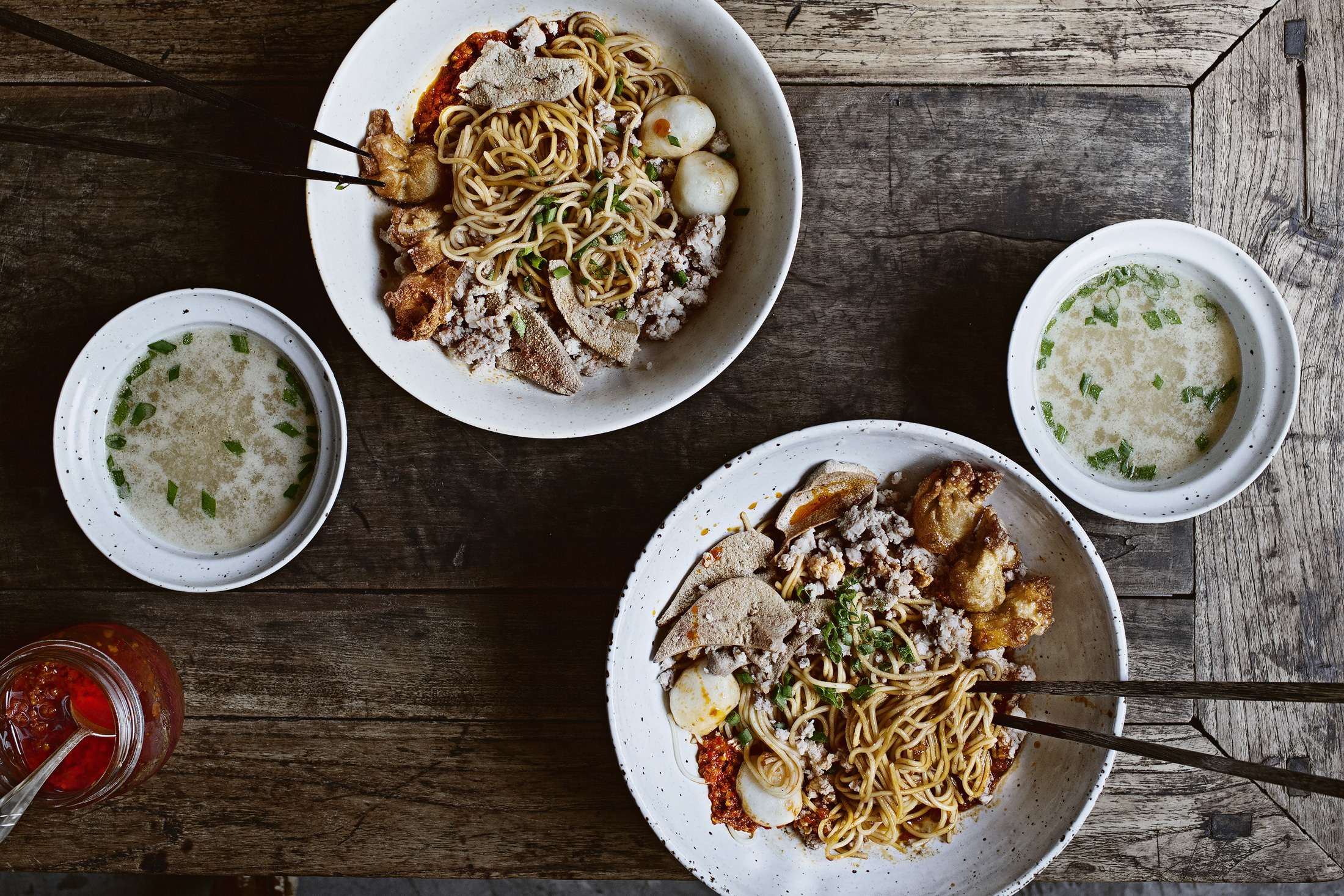
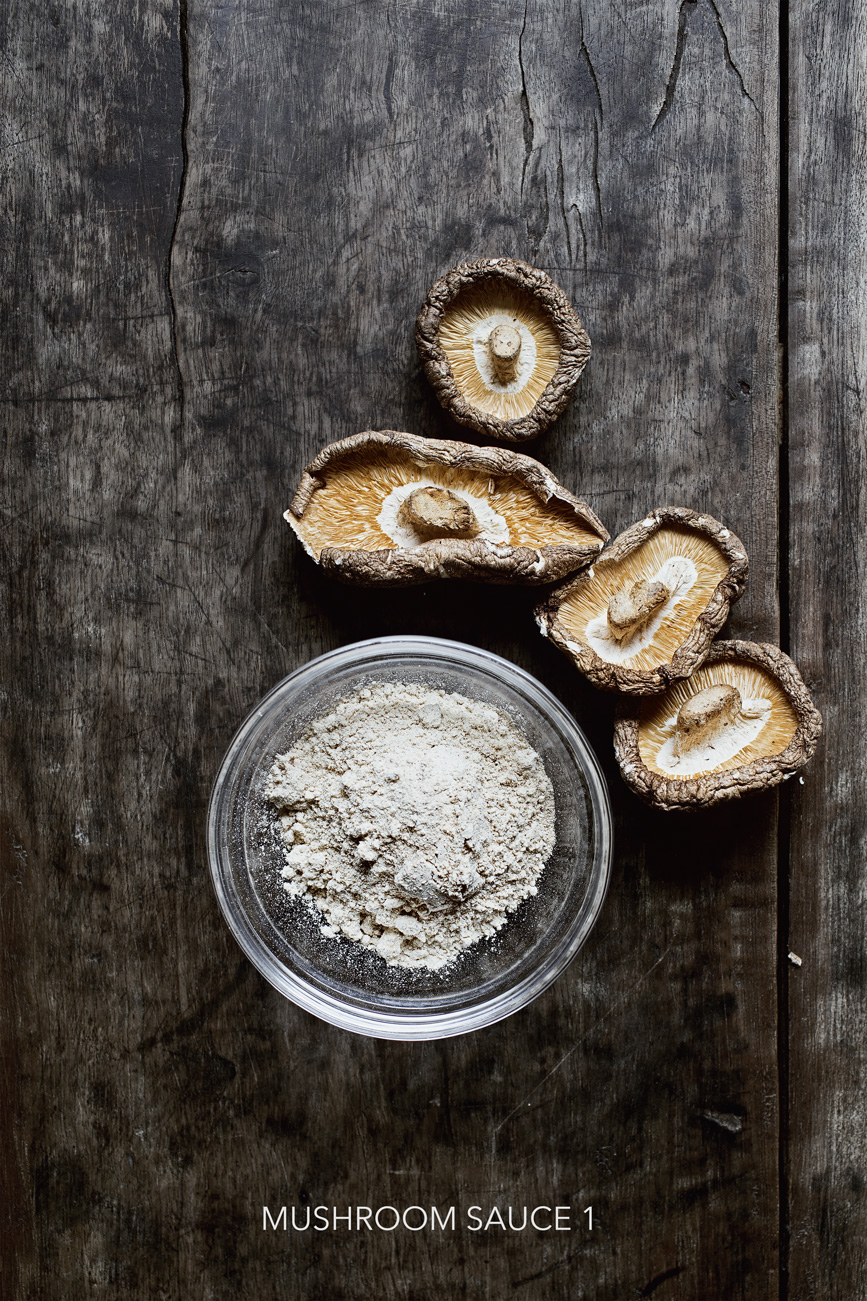
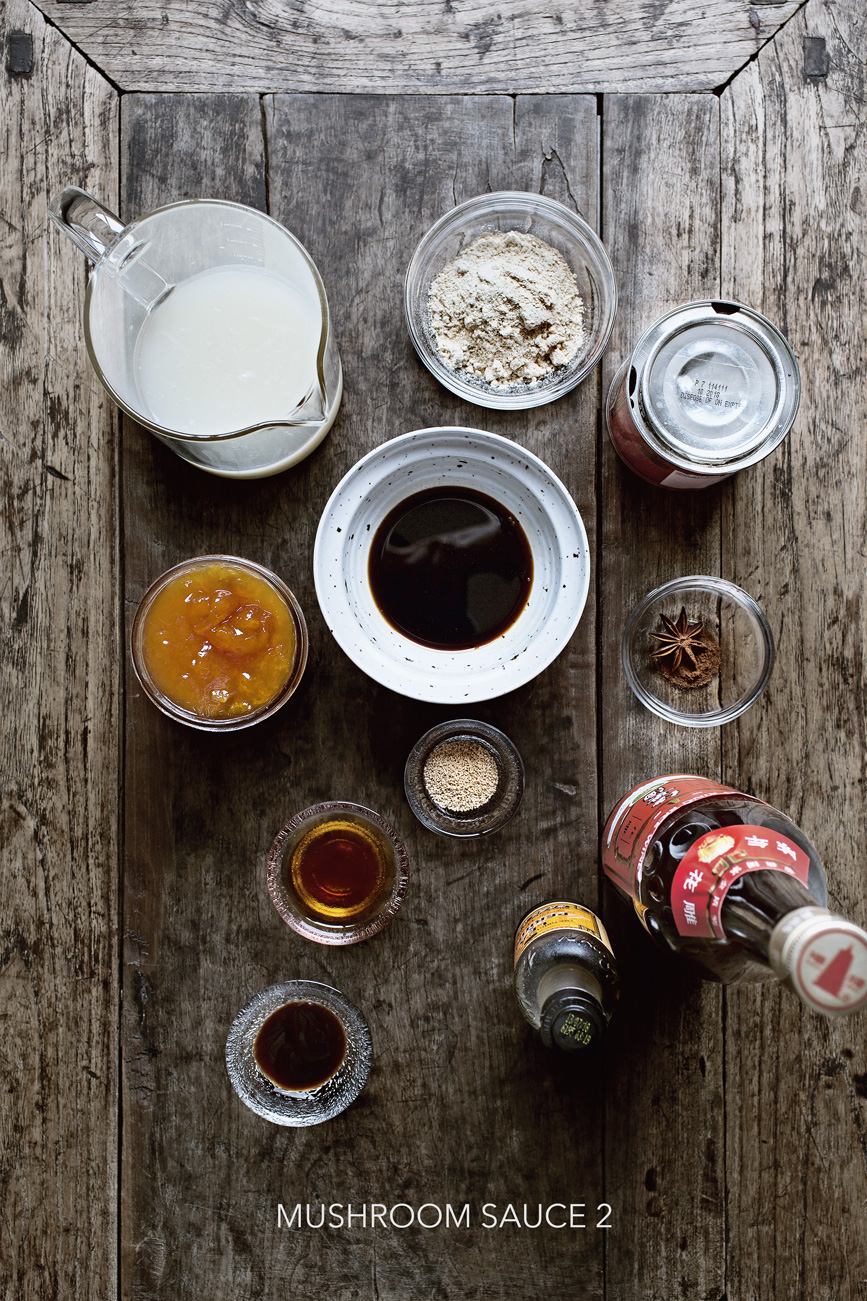
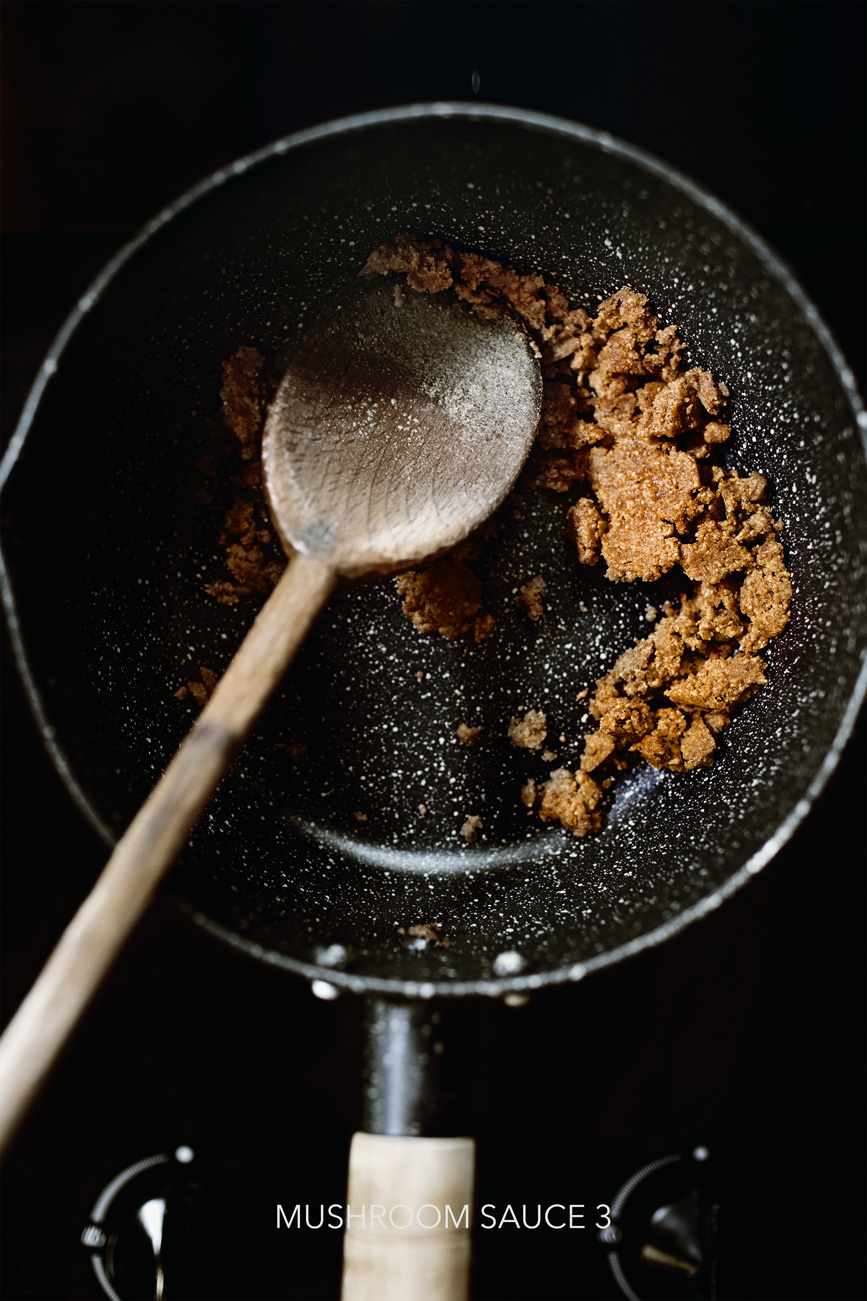
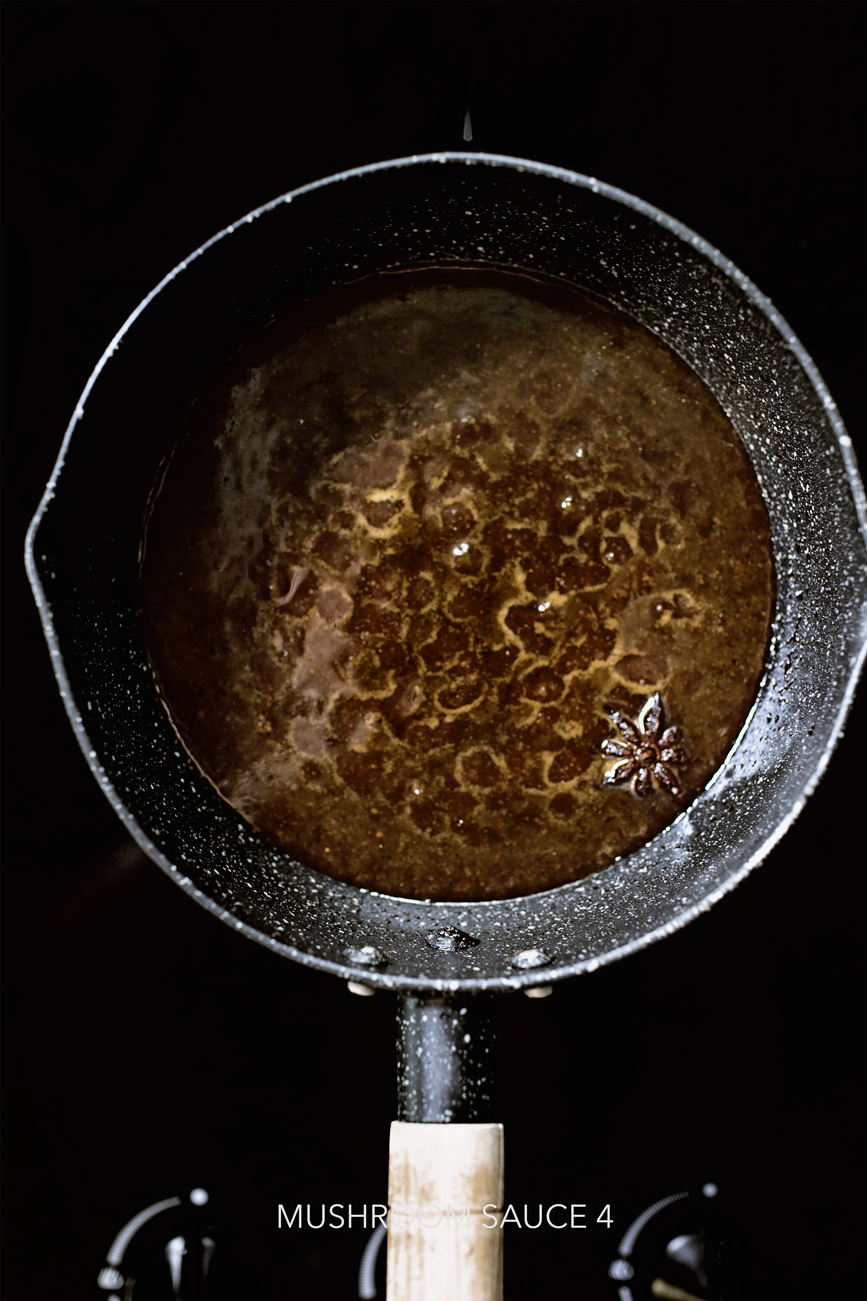

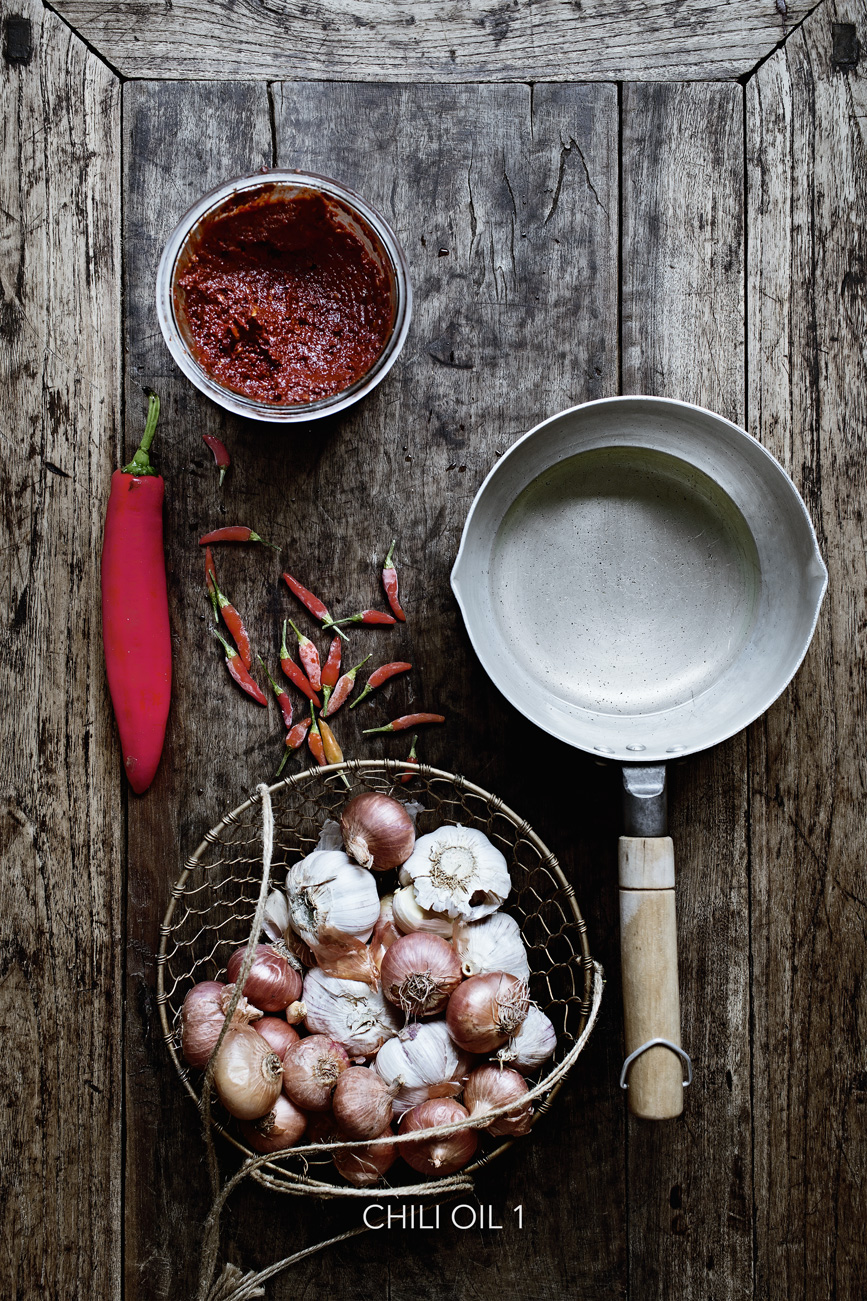
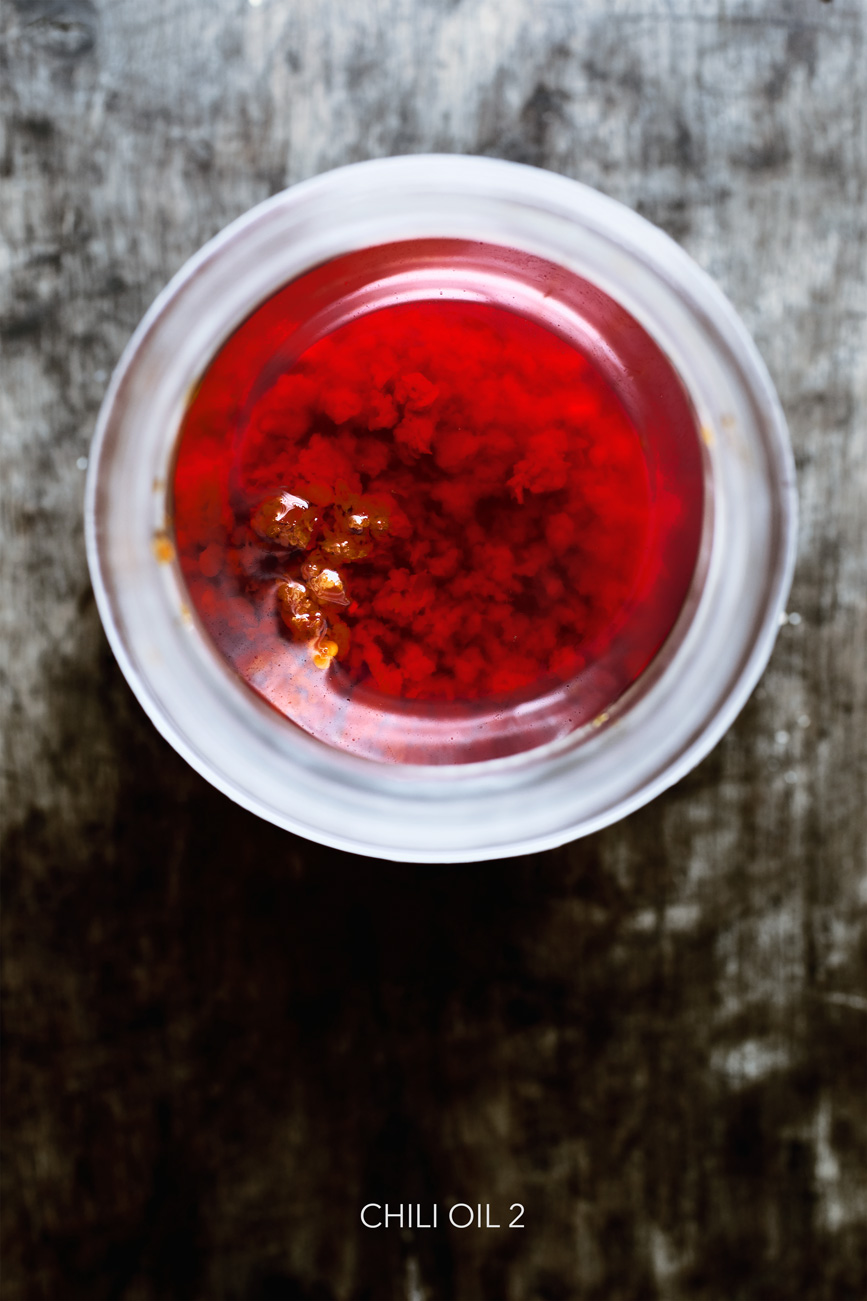
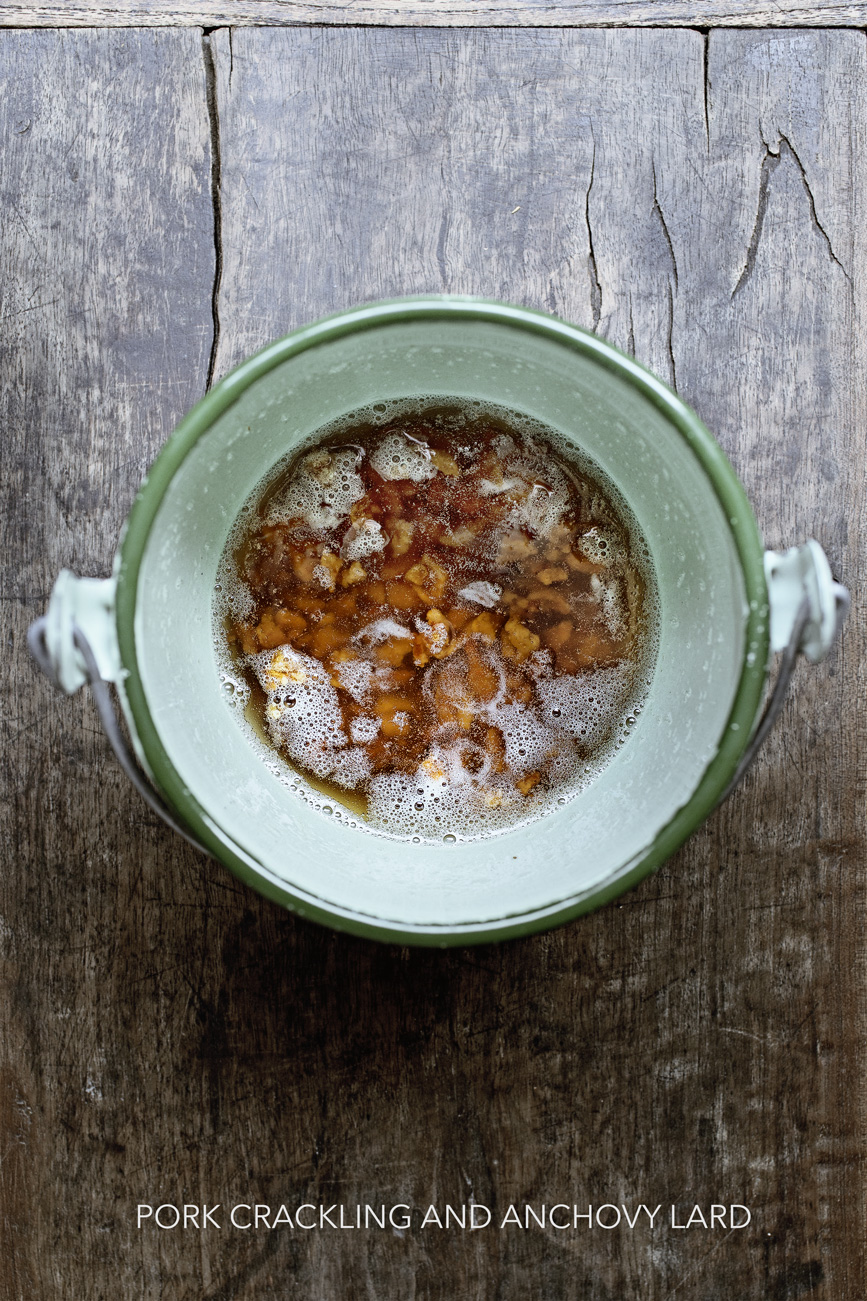
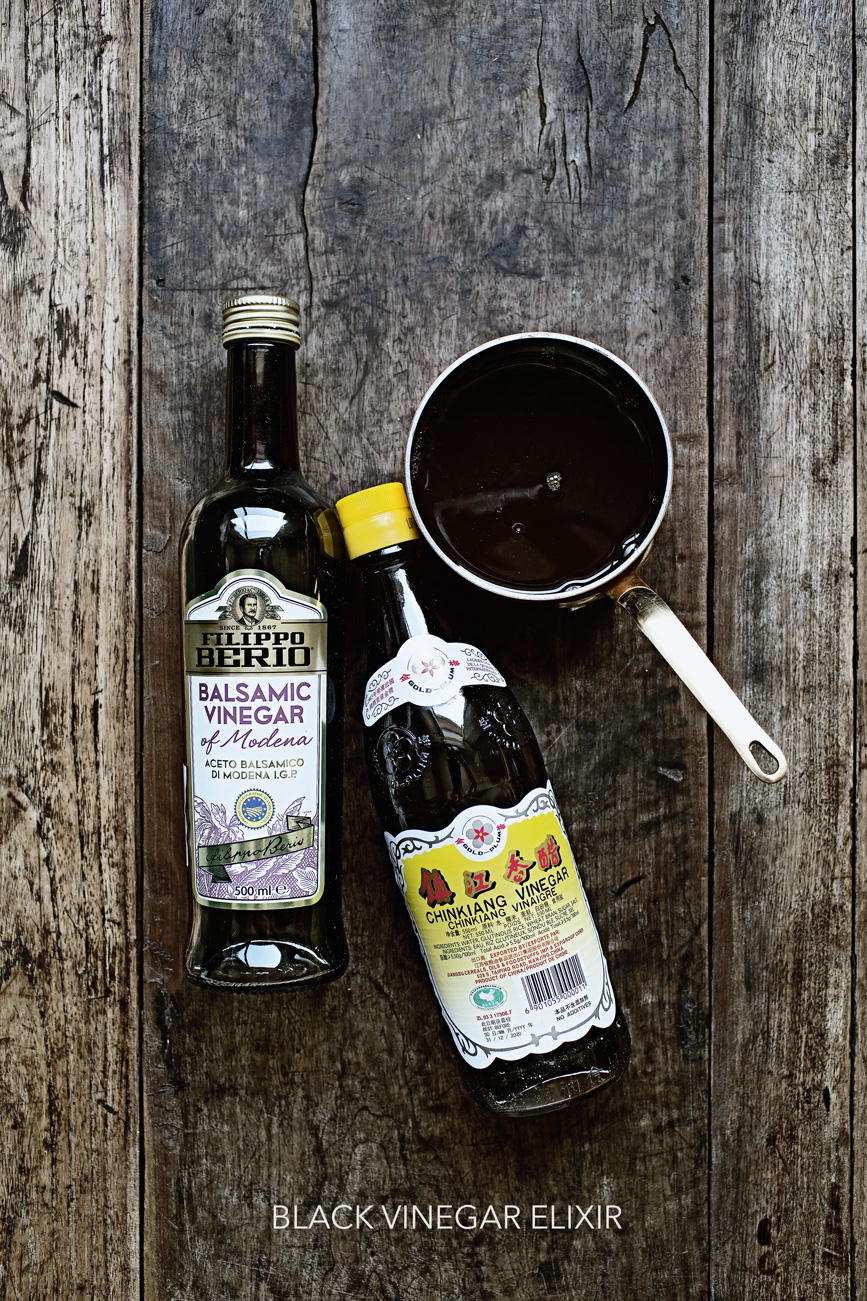
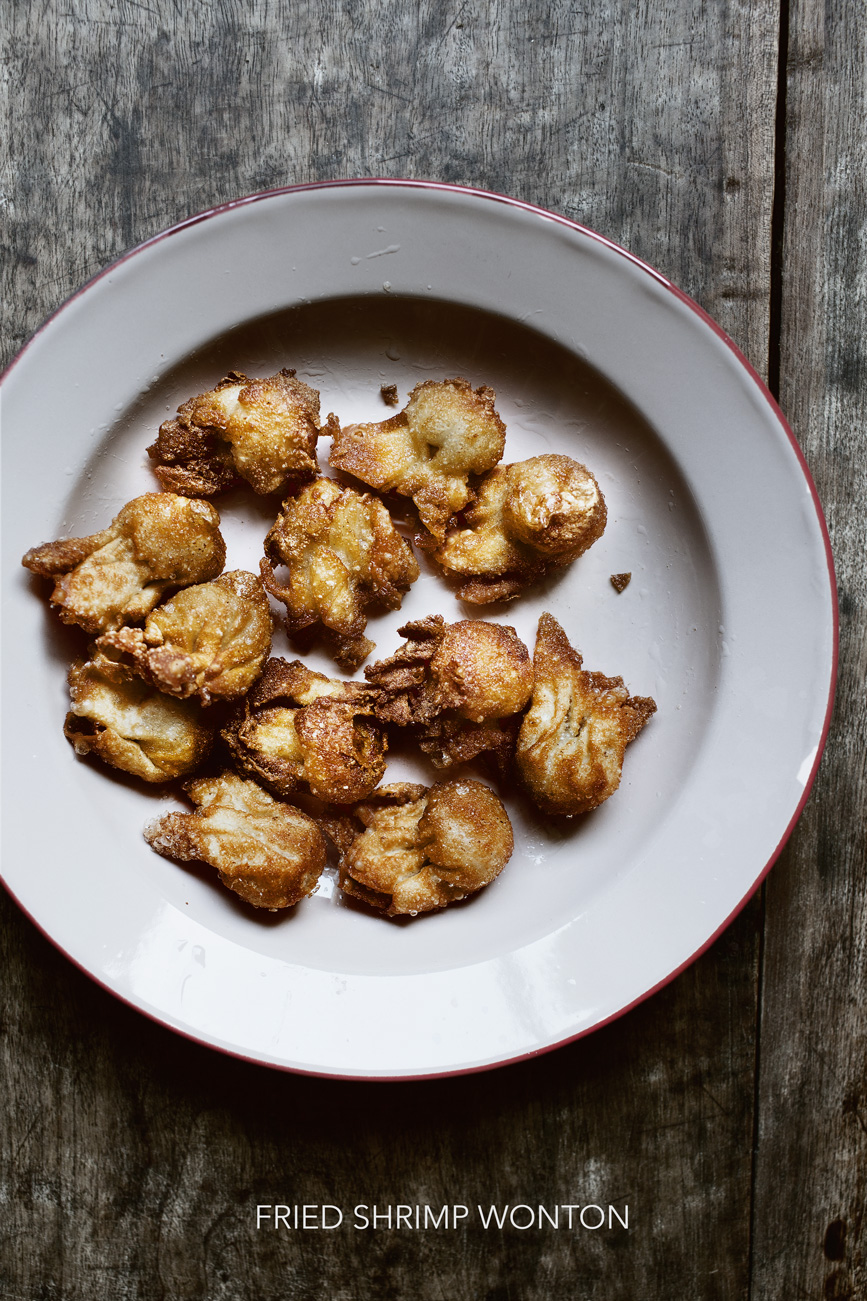
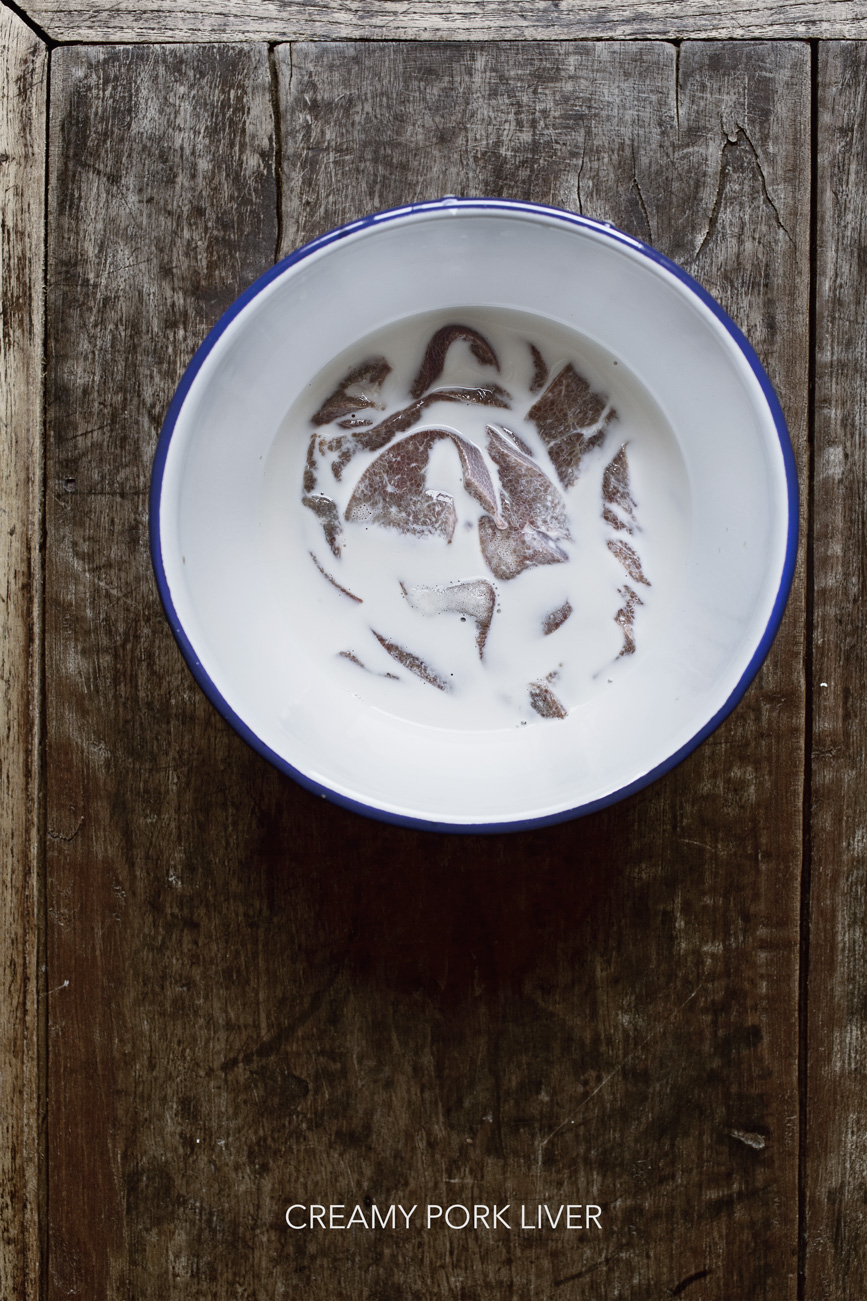
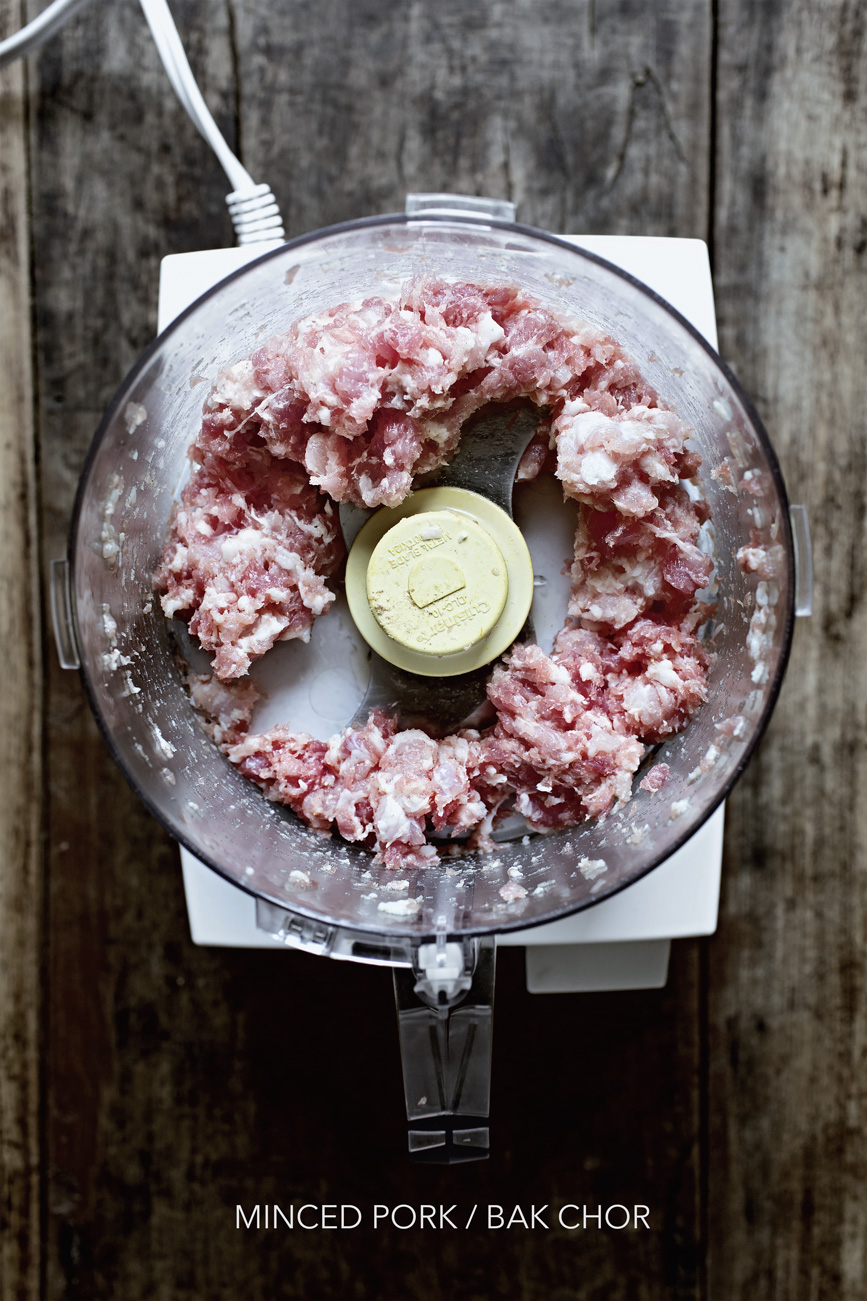
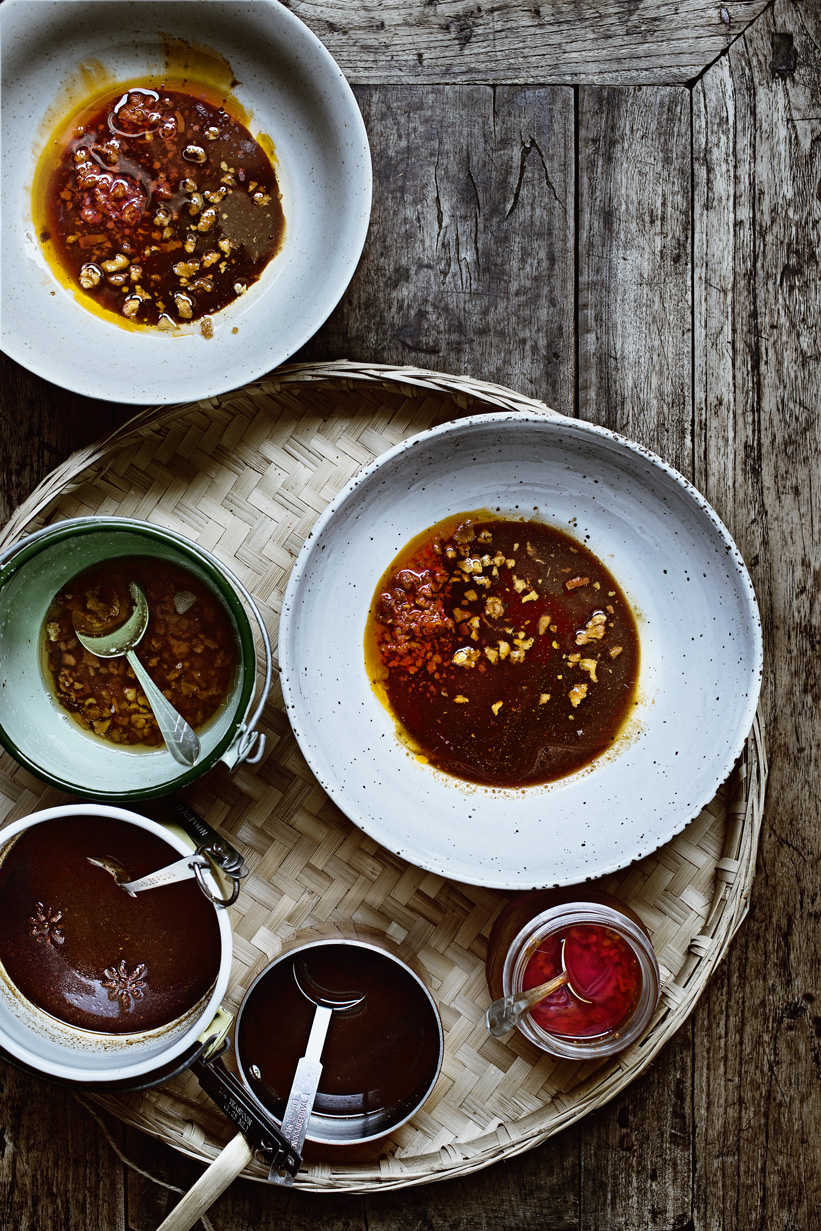
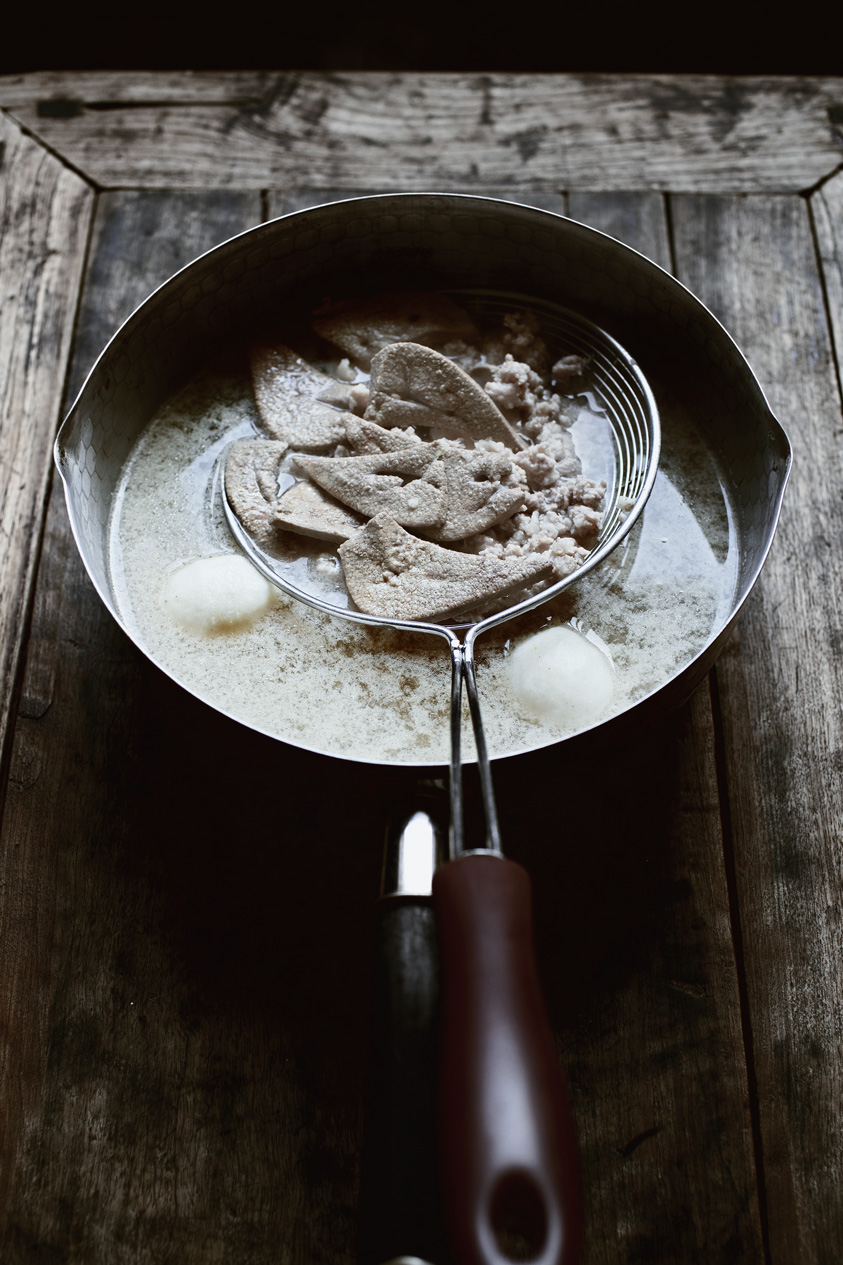
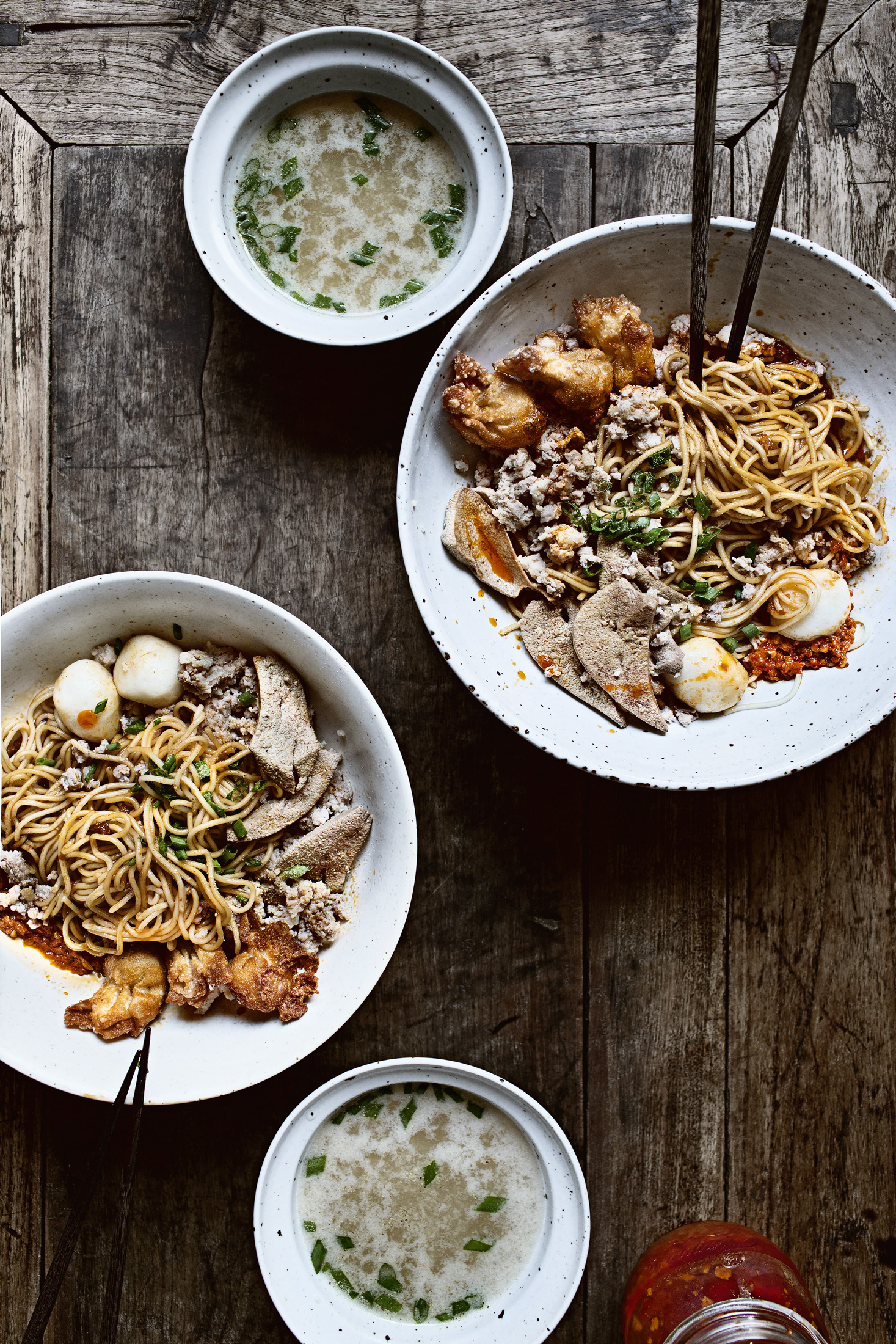
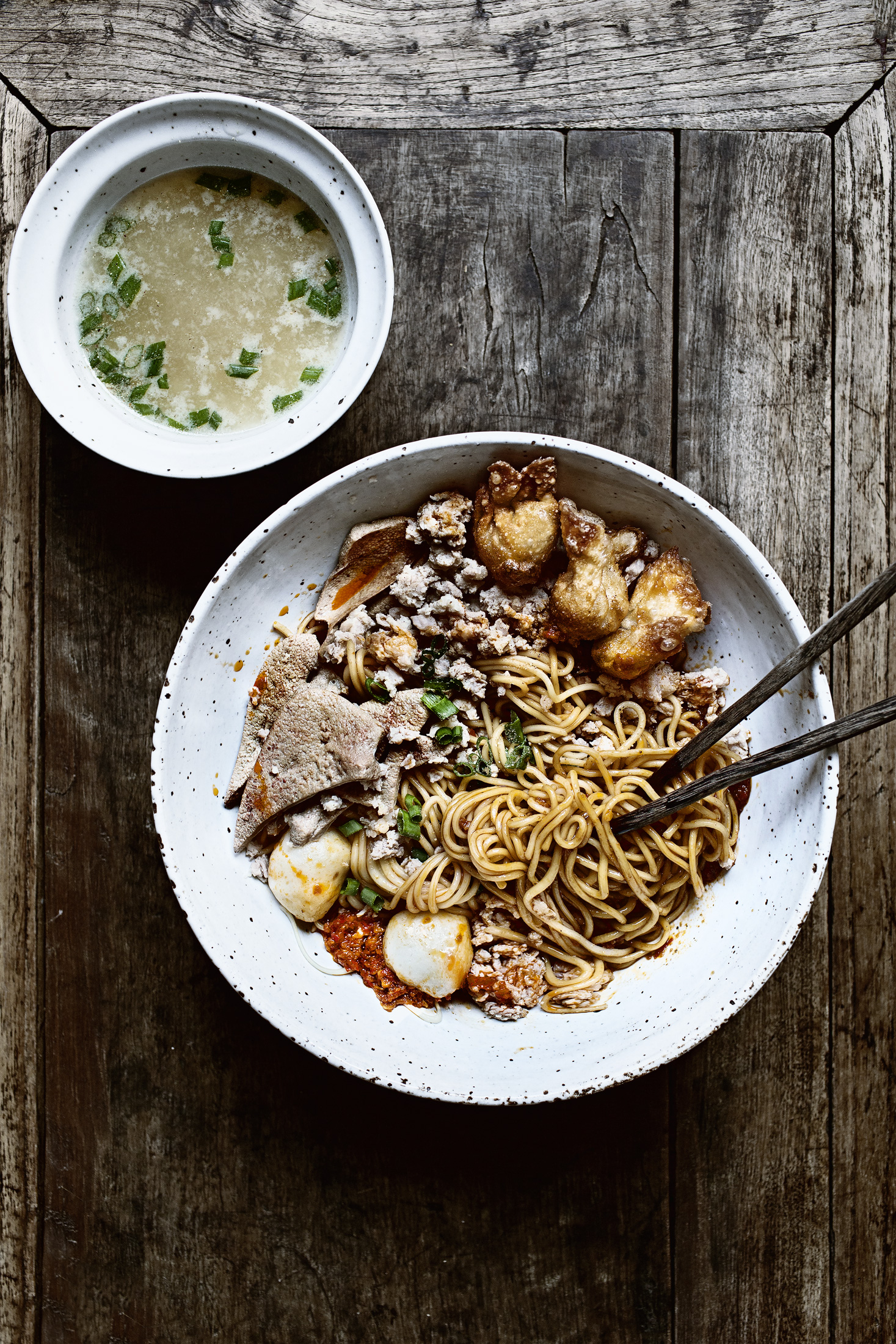
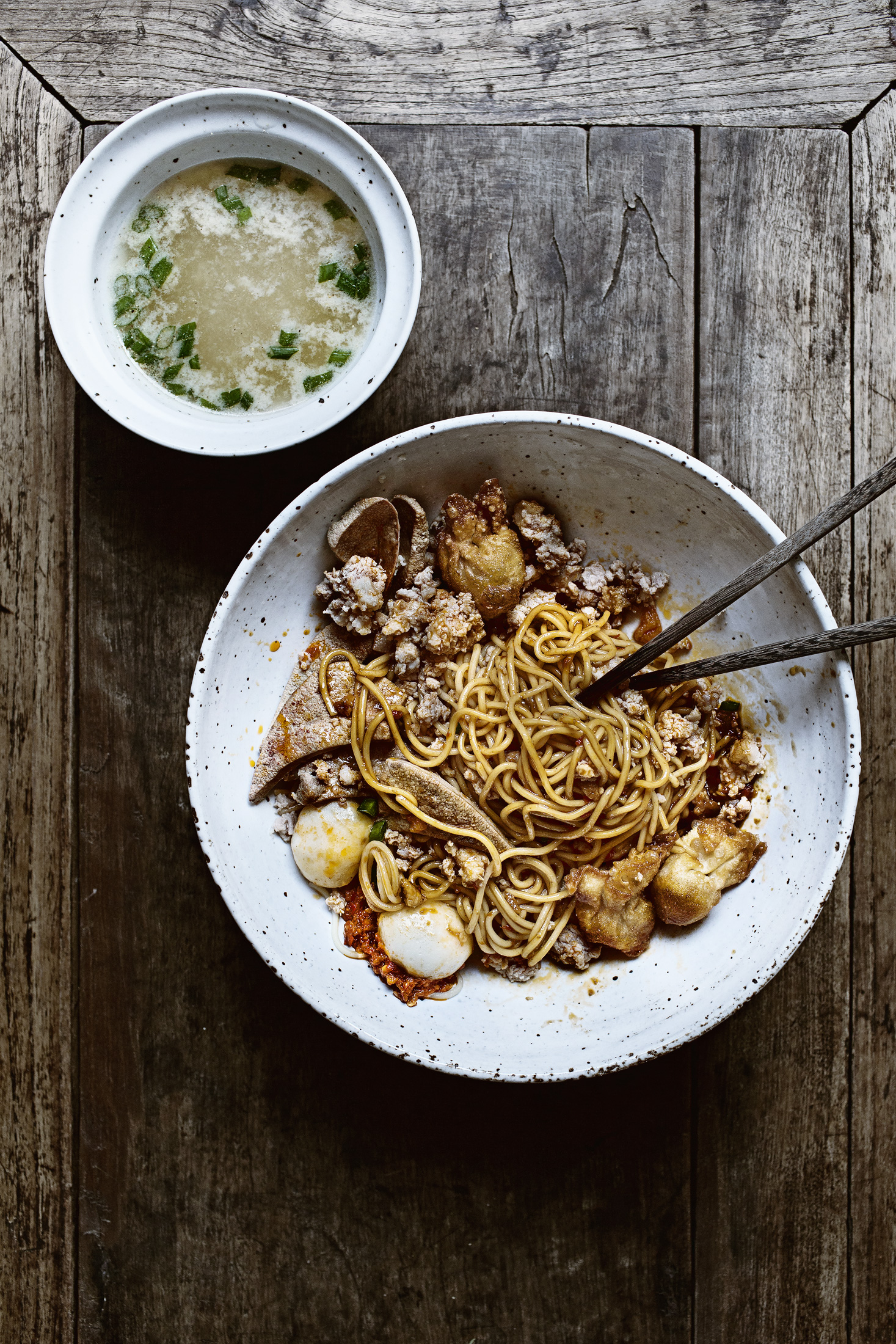
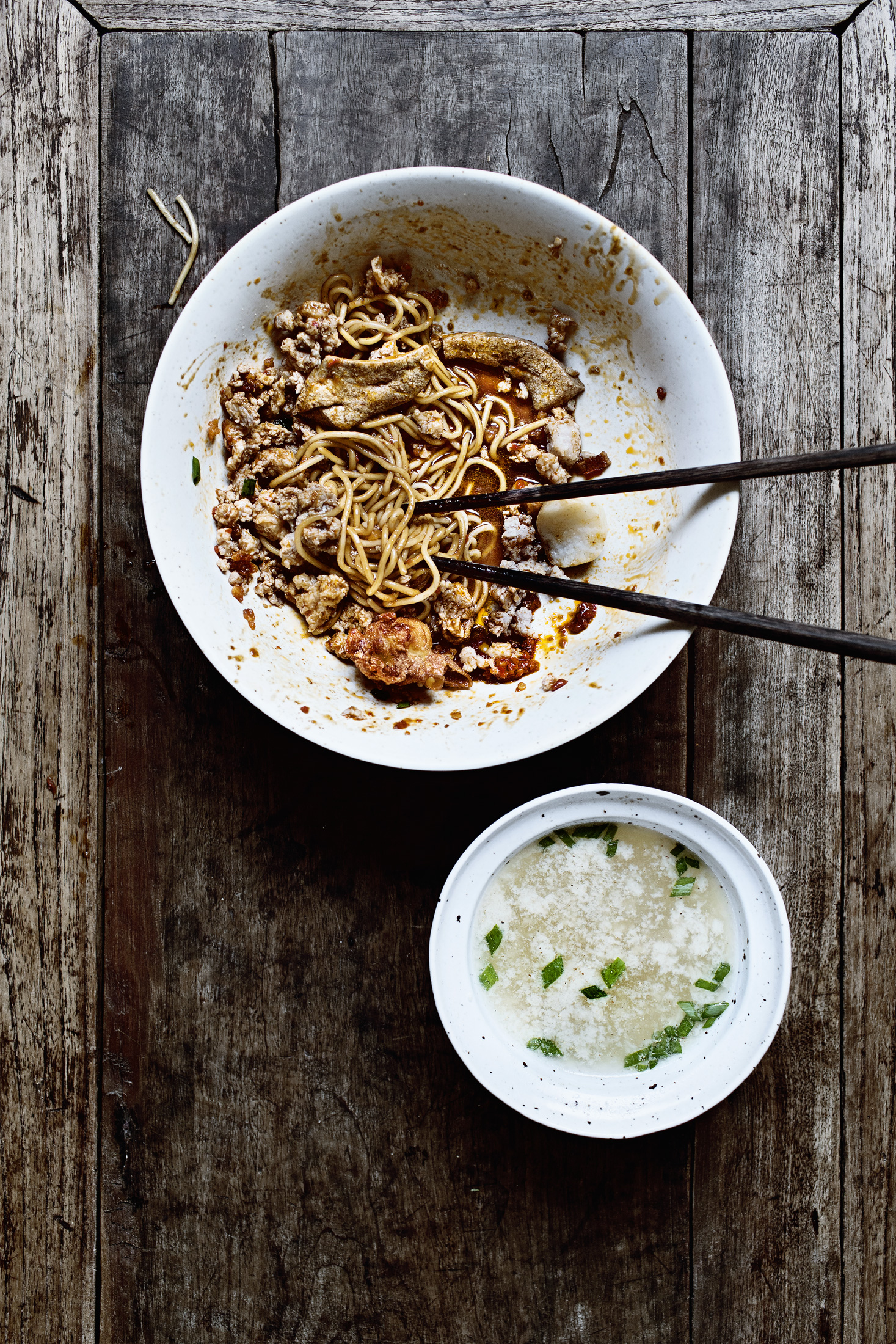
Dawn
04.17.2018at12:19 AMYou are back! I fell I’m love with Singapore a couple of months ago and Hong Kong last week. It cold Scotland I cannot wait until next October but I’m sure it will be worth it. Dawn
Abbe@This is How I Cook
04.17.2018at12:50 AMI can’t believe I have to wait until 2019 to buy this book. What a tease! In the meantime it might take me that long to make these noodles, but I may as well fill my time somehow! Congrats!
Sarah
04.17.2018at12:55 AMI’m with Abbe. 2019 feels like a long ways away! I have been a stealth reader of your blog and have a deep appreciation for your writing style, the beauty of the photography, and of course, the deliciousness of the recipes. I look forward to seeing the final product!
fallingnoodles
04.17.2018at1:10 AMThis is genius! I love your substitutions/improvements on already fantastic recipes. But wow Oct 2019 is quite a wait!
Jonas
04.17.2018at2:46 AMI’m so looking forward to this book! Can’t wait! And as always, I love your approach to cooking and the “philosophy” behind it :)
Stephanie
04.17.2018at3:18 AMI am beyond excited for you, Mandy! I feel I have waiting years for a cookbook from you and happy it’s finally happening. Who is the publisher? Will it be available for purchase through amazon? What an incredible feat. Lots of love from San francisco!
Misha Grifka
04.17.2018at3:20 AMI will be ordering the cookbook as soon as humanly possible! This blog has helped me through my own struggles a lot. I won’t drone on about my personal issues, but I wouldn’t be half the cook I am today without you!
nywoman
04.17.2018at3:38 AMCongratulations! Exciting news indeed, and welcome back, you have been missed.
Kari
04.17.2018at3:40 AMCongratulations on the cookbook! That’s so exciting!
Kari
http://sweetteasweetie.com/passion-fruit-colada/
Bunny Peters
04.17.2018at3:52 AMVery excited about your cookbook!!! I have family in Singapore and we visit as often as possible!!! We absolutely love it there (& take cooking classes each visit to reinforce my skills as an Asian cook)……
My husband’s job has taken us everywhere too (& I have been lucky enough to work from everywhere thanks to our modern technology)!!! I also take cooking classes everywhere so I can learn local specialities……
Please keep sharing your wonderful recipes (& adaptations)….. Thank you very much!!!
Dawn
04.17.2018at6:05 AMYes! A Cook book….. “BRING IT”!!!! Can’t wait!
Congratulations
Dawn
Heidi
04.17.2018at6:10 AMBest news of the day: You’ve written a cookbook!!!
Worst news of the day: I have to wait until Oct. 2019 to see it!!! :)
Thankfully, the good news outweighs the bad news, lol! Really looking forward to reading the book, and making these noodles!
Cheers!
Daphne
04.17.2018at7:31 AMHoly shit I love you. I’m Singaporean and have been eating Tai Hwa since I was a child. Am definitely tabling this as a weekend kitchen experiment!!!!
deb
04.17.2018at8:09 AMYay! Congrats! I can’t wait to read it.
Asa
04.17.2018at9:18 AMBeen reading your blog for a while, but apparently not very closely, as I wasn’t aware of your relationship issues. I just thought you had a melancholy way to you. I’m glad at least cooking provided some release for you. I look forward to your cookbook. Good luck with everything.
Dawn Barnhart
04.17.2018at10:34 AMYay, you’re back–I’ve missed your posts. Along with the others who mentioned it, Fall 2019 is a long way off… yeesh. Better than never tho. Congrats Mandy – I cannot wait to get my hands on it. This noodle bowl looks super as well!
Flore
04.17.2018at10:58 AMI’m so so excited about your book (and can’t believe I have to wait soooo long ;)
What an inspiring story: food as an escape.
VictoriaK
04.17.2018at1:42 PMI have been a long-time lurker who has attempted many of your recipes, averaging about an A-/B+ success (limited access to specialty items), and congratulate you most sincerely on the news of your cookbook!
We recently returned from a Singapore holiday and also ate the Tai Hwa from the Michelin one-star Hawker. It was noodle love at first bite, yet in our own way we preferred the dish as prepared from a tiny and unrated noodle house near our hotel. Go figure. Regardless, I am excited to attempt your version. Thank you, and best wishes for the success of your cookbook!
nvrm
04.17.2018at2:13 PMOctober 2019??? I’m in tears :(
Ann
04.17.2018at4:28 PMKudos and congrads on the upcoming book! Singapore hawker food is great, if you haven’t been yet, hawker food in Malaysia is terrific Penang being very memorable!
Pamela
04.17.2018at6:08 PMCongratulations on the cookbook! But October 2019! Too long to wait.
I scrolled down the list of ingredients for this wondrous noodle dish and it wouldn’t even fit in one screen of my iPad. I think this has to be the longest list of ingredients for a street hawker noodle dish that ever existed. Ha ha ha.
Jackie
04.17.2018at10:27 PMMandy, Bravo! Bravo! Bravo!
Dulcistella
04.18.2018at5:41 PMMandy, can we have some more info on this book? Some sneak peek? ;-) I wrote you an e-mail some time ago but I had problems with my account and if you answered I probably lost it :-(
mandy@ladyandpups
04.18.2018at6:11 PMDulcistella, what was the email about? Since the book is still in preliminary editing phase and won’t be out for quite some time, it’s a bit early to “preview it”. But I definitely will do that maybe starting six months before the book is out :)
Dulcistella
04.18.2018at8:38 PMIt was about the possibility of a sneak peek :-D and also if you needed recipe testers, like Emiko did with her first book. And, of course, my congratulations!!
Jenna
04.18.2018at11:24 PMLooking forward very much to your book!
K
04.19.2018at12:04 AMI will be very glad to see the cookbook come out. I’ve been in the position where I’ve also had to use cooking as an escapism for a toxic relationship. While it sounds like what we were both escaping from was borne of different circumstances, the same outlet found was cooking.
Good on you for finding a way to survive.
AnnieN
04.19.2018at1:11 AMCan’t wait for the cookbook. We are already one quarter way through 2018, so hopefully the rest of 2018 speeds along too.
Alex
04.19.2018at3:46 AMCongrats, Mandy! Can’t wait to see your book in the flesh. October 2019 has never felt so far away, haha. Hope you come to NYC during your book tour! Would love to meet in real life :)
Ann
04.19.2018at5:35 AMI already congradulated you earlier but just a heads up on the epicurious website there’s an article right up your alley on chicken fat cornbread and cooking with schmaltz, thought it would feed your thinking outside the box sensibilities.
Vi VIan
04.29.2018at10:06 PMHow exciting and what great news! Will your book be available to purchase online?
mandy@ladyandpups
04.30.2018at2:40 AMVi, yes of course :)
RZoolander
05.01.2018at3:31 AMCongratulations. What an accomplishment. I really am looking forward to it.
Yok Teng
05.03.2018at2:52 PMWelcome back. Glad you spent some time in Singapore. I have been following your blog since i was working in Australia. I was originally from Singapore. My Mum is from Taiwan and my Dad is from Singapore. I came back to Singapore last year. Hope you enjoy all the food in Singapore as i had enjoyed making and eating the soup dumpling with crackling!
Valerie Delisle
06.06.2018at7:50 AMWow, I’ve just made your recipe, what an adventure ! I had to do my own abricot jam and shrimp wonton but it totally worth it ! It’s a lot of work but it’s a cheap ticket to asia ;)
Darren
06.20.2018at5:06 PMCongrats on your book! Make sure it’s available in kindle!